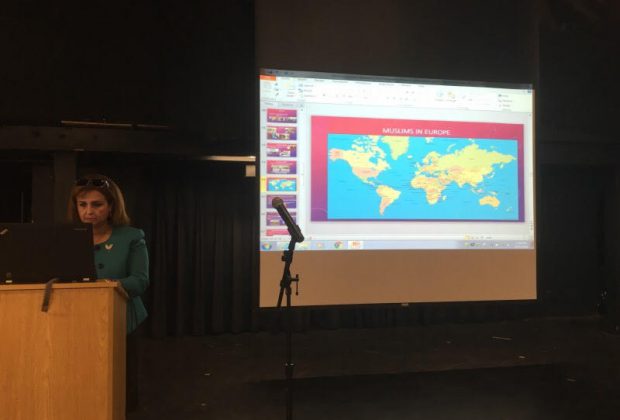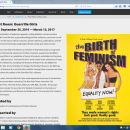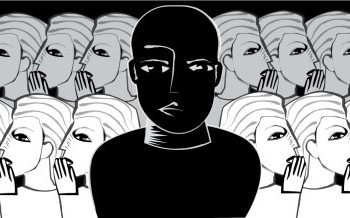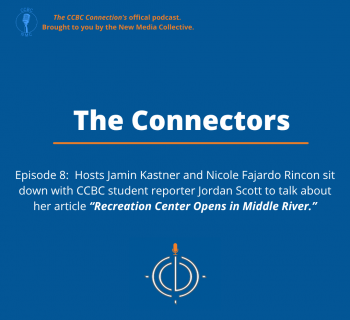Dylan Greene
In the current political discourse, terrorism and radical extremism plays a big role in shaping public policy. In the public consciousness, it has informed the basis of many controversial shifts in legislation including the infamous Patriot Act.
Many Americans live under the fear of terrorist attacks, a fact brought to light by the 15th anniversary of September 11th, 2001. But far too often, trying to find the root of the problem doesn't come up in mainstream discussion.
Dr. Azar Estamypour-King, in association with CCBC's International Club, decided to bring this subject out into the open last Wednesday on October 5th.
Her presentation focused on the current subject of discussion, that being radical Islam. However, what she presented can easily be applied to other ideologies. Her presentation was largely informed by her knowledge of psychology as well as her experiences in Iran, Europe, and the United States. In her own words, “Muslims are held hostage to extremism.”
In order to understand the phenomenon, it is imperative that the political and cultural contexts are also understood. Tensions in Europe are much more overt than in the United States with hostility being more pronounced.
According to Dr. King, “unfortunately a lot of Europeans, especially...the French are very nationalist.” This is evident in legislation in France that bars the wearing of burqas and the modern “burkini”.
Homes of Muslims are vandalized with messages expressing attitudes such as “Muslims go home.” and anti-Muslim protests are commonplace. Those who came as refugees to escape the turmoil in their native lands are viewed with suspicion and contempt. Dr. King elaborates, “Racism [in Europe] is very open, people come and they don't like you.”
As a way of capitalizing on the climate of fear, radical groups step forward with the siren song of an end to the chaos. This is done by manipulating disaffected and disenfranchised Muslim citizens. Usually, the people who are targeted by these groups are young. This is a way of exploiting the identity crises usually faced by the young. Dr. King cites the example of teenagers being given a plastic key as a promise that they will be rewarded in the afterlife.
Dealing with a complex problem such as radical extremism and terrorism will require further examination in public policy. It will also require a much more nuanced understanding than is typically presented. Going forward, policymakers will have to contend with preserving liberties and observing the differences between an ideology and its most radical proponents.
However, perhaps the best first step in advancing the dialogue is by deconstructing the methodology used to bring vulnerable people on board.
*Articles reflect the views of the author and or those quoted and do not necessarily represent the views of CCBC or the CCBC Connection.














